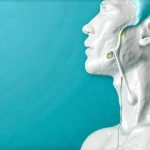The sensation of nausea during eating is multifaceted, often stemming from physical causes like food poisoning or gastrointestinal issues. However, it’s less commonly understood that seemingly unrelated factors – specifically, dry mouth and poor oral health – can significantly exacerbate these feelings, even in the absence of acute illness. This connection isn’t merely about discomfort; it involves a complex interplay between salivary function, taste perception, digestive processes, and neurological responses. When our mouths aren’t adequately lubricated or are harboring underlying dental problems, the simple act of eating can become a triggering event for nausea, transforming mealtime into an anxiety-inducing experience.
This phenomenon extends beyond mere inconvenience; it impacts quality of life, nutritional intake, and psychological well-being. Individuals experiencing chronic dry mouth (xerostomia) often report difficulty chewing and swallowing, altered taste sensations, and increased sensitivity to certain textures or smells – all factors that can contribute to nausea. Furthermore, the presence of cavities, gum disease, or ill-fitting dentures disrupts the normal mechanics of digestion, potentially leading to discomfort and a heightened risk of triggering the body’s emetic reflex. Understanding these intricate relationships is crucial for both prevention and effective management of nausea related to oral health.
The Role of Saliva in Digestion & Nausea Suppression
Saliva isn’t just about moistening food; it’s an integral component of the digestive process, beginning even before we take our first bite. It contains enzymes like amylase that initiate carbohydrate breakdown, making food easier to swallow and digest. More importantly for this discussion, saliva acts as a buffer, neutralizing acids produced in the stomach – preventing reflux and minimizing irritation that can trigger nausea. – A lack of sufficient salivary flow means food isn’t broken down efficiently, creating a greater digestive workload for the stomach. – This increased burden on the gastrointestinal system can contribute to feelings of fullness, bloating, and ultimately, nausea. – The buffering capacity is also reduced, increasing the likelihood of acid reflux which directly stimulates the vomiting center in the brain.
When saliva production is compromised – due to medications, medical conditions like Sjögren’s syndrome, or even dehydration – these protective mechanisms are diminished. This leads to a cascade of events that increase susceptibility to nausea during eating. Imagine trying to swallow dry crackers; the effort required and the abrasive texture can be unsettling for many people. Now imagine experiencing this sensation with every bite, coupled with an inability to neutralize stomach acid. It’s easy to see how such conditions would contribute to a heightened feeling of discomfort and potentially induce nausea. This is particularly true for those who already have a sensitive gastrointestinal system. You can find more information about the impact of gut health on overall wellbeing here.
Furthermore, saliva plays a vital role in taste perception. Dry mouth distorts flavors, making food less appealing and potentially triggering aversion. A decreased sense of taste can also lead individuals to over-season their food with strong flavors – further irritating the digestive tract. The brain interprets these distorted signals as something unpleasant or even toxic, initiating a protective response which includes nausea and vomiting. Understanding how poor gut health affects the brain here can help you navigate these issues.
Oral Health Issues & Their Nausea-Inducing Potential
Poor oral health, encompassing conditions like cavities, gum disease (gingivitis and periodontitis), and poorly fitting dentures, can directly contribute to nausea during eating in several ways. – Untreated cavities create pockets of bacterial infection that can lead to inflammation and pain. This constant discomfort is a strong stimulus for the nervous system, increasing sensitivity and potentially triggering nausea. – Gum disease causes inflammation and bleeding gums, making chewing painful and difficult. The sensation of blood in the mouth is often profoundly unpleasant and can quickly induce feelings of nausea or even vomiting. – Ill-fitting dentures create friction and irritation within the mouth, disrupting normal oral function and causing discomfort during mastication (chewing). This leads to improper food breakdown and increased digestive strain, exacerbating nausea.
The mechanical difficulties associated with poor oral health force individuals to alter their chewing patterns – often resulting in larger boluses of poorly processed food. This puts additional stress on the stomach and intestines, increasing the likelihood of indigestion and nausea. Beyond the physical discomfort, the psychological impact of having a painful or visibly unhealthy mouth can also contribute significantly. Anxiety about eating, fear of triggering pain, and self-consciousness about oral health can all amplify feelings of nausea. It is important to remember that these issues aren’t isolated; they often interact with each other, creating a vicious cycle of discomfort and aversion to food. A healthy oral microbiome impacts overall health here.
The Vagus Nerve & The Gut-Brain Connection
The vagus nerve, often referred to as the “wandering nerve,” plays a crucial role in connecting the brain to various organs, including the digestive system. It’s responsible for transmitting signals between the gut and the brain, influencing everything from digestion and heart rate to mood and immune function. – When there’s irritation or inflammation within the mouth – caused by cavities, gum disease, or even dry mouth – it can stimulate the vagus nerve. – This stimulation sends signals to the brain, potentially triggering the nausea center and initiating the vomiting reflex.
The gut-brain axis is a bidirectional communication system linking the gastrointestinal tract and the central nervous system. This means that what happens in your mouth and digestive system directly impacts your brain, and vice versa. Chronic oral health issues or dry mouth can disrupt this delicate balance, leading to increased anxiety, stress, and ultimately, nausea. For example, the persistent discomfort of gum disease can activate the hypothalamic-pituitary-adrenal (HPA) axis – the body’s primary stress response system – resulting in heightened cortisol levels and a greater susceptibility to nausea. If you are experiencing these issues, managing nausea may help here.
Identifying & Addressing the Root Cause
Determining whether dry mouth or poor oral health is contributing to nausea requires careful evaluation. – Start by consulting with both your dentist and physician. A thorough dental examination can identify cavities, gum disease, and denture fit issues. Simultaneously, a medical evaluation can determine if underlying conditions (like Sjögren’s syndrome) or medications are causing dry mouth. – Maintaining excellent oral hygiene is paramount: brush twice daily with fluoride toothpaste, floss regularly, and schedule routine dental checkups and cleanings. – For individuals experiencing chronic dry mouth, strategies to increase salivary flow include sipping water frequently throughout the day, chewing sugar-free gum or mints, and using artificial saliva products. A deeper understanding of gut inflammation can help here.
Dietary Modifications & Lifestyle Adjustments
Simple dietary modifications can also help minimize nausea during eating. – Opt for softer foods that require less chewing. – Avoid highly acidic or spicy foods that can irritate the digestive system. – Eat smaller, more frequent meals rather than large ones. – Stay hydrated by drinking plenty of water throughout the day. – Reduce stress levels through techniques like mindfulness, yoga, or meditation as stress can exacerbate nausea symptoms. If your nausea is persistent and significantly impacting your quality of life, seek professional medical attention to rule out any underlying health conditions and discuss appropriate treatment options. Remember, addressing both oral health and overall well-being are crucial for alleviating this often overlooked source of digestive discomfort. Increasing prebiotic fibers can promote gut health here. Also, be aware of how poor gut health may affect your breath and tongue here.


















